
In honor of Veteran Federal Workers Everywhere.
Coming Soon…
If a billionaire wants to remake our world in his image, is that a world we want to live in?
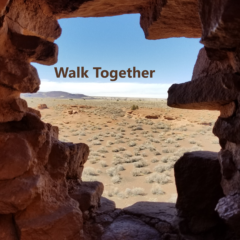
Explore Christian teachings and insights with Pastor Jim Butler. Join us for spiritual growth and community engagement.

If a billionaire wants to remake our world in his image, is that a world we want to live in?

“Puritans, Get Your Sin On!”

“What Happens in DOGE Land, Stays in DOGE Land”
18 When Simon saw that the Spirit was given at the laying on of the apostles’ hands, he offered them money 19 and said, “Give me also this ability so that everyone on whom I lay my hands may receive the Holy Spirit.”20 Peter answered: “May your money perish with you, because you thought you could buy the gift of God with money! 21 You have no part or share in this ministry, because your heart is not right before God. 22 Repent of this wickedness and pray to the Lord in the hope that he may forgive you for having such a thought in your heart. 23 For I see that you are full of bitterness and captive to sin.”24 Then Simon answered, “Pray to the Lord for me so that nothing you have said may happen to me.”
Acts 8:18-24

“My Faith Makes Me Filthy Rich!”
In Acts 8 Simon the Sorcerer saw a moneymaking opportunity to get rich on this whole religious thing. Simon Peter identified this charged him with, “May your money perish with you, because you thought you could buy the gift of God with money!”
The Protestant Reformation began because the Church became entwined with politics. Politicians could buy forgiveness of sins through purchased “Indulgences.” Churches sold pew seats to the highest bidder. Political influence became the gospel cash cow of the church. Martin Luther in response to this corruption, nailed his “95 Theses” to the Wittenburg Church castle door, which marked the start of the Protestant Reformation.
Funding politicians to perform their corrupt political deeds while hiding behind a worn cross, is nothing short of creating a system of Christian Voyeurism … a Peeping Tom Gospel, which proclaims, “Don’t sin! Let the politicians sin for you.” Today, the United States watches as cross-wearing politicians sell the U.S. Government to the highest bidder. Ethical business guardrails are cutoff so that the DOGEcoins of corruption can flow freely into oligarch pockets. While wearing jeweled crosses, spokespersons grin as they detail how the Government kidnaps people off U.S. streets to rendition them to a for-profit concentration camp in El Salvador.
Her leaders judge for a bribe, her priests teach for a price, and her prophets tell fortunes for money. Yet they look for the LORD’s support and say, “Is not the LORD among us? No disaster will come upon us.”
- Michah 3:11

“Hands Off! Beep Beep!”
Beep Beep!,
Pastor Jim


“The Crosswalk”


“Assault on Education”

“Not Tardy Today”
Of Such is the Kingdom of God,
Pastor Jim

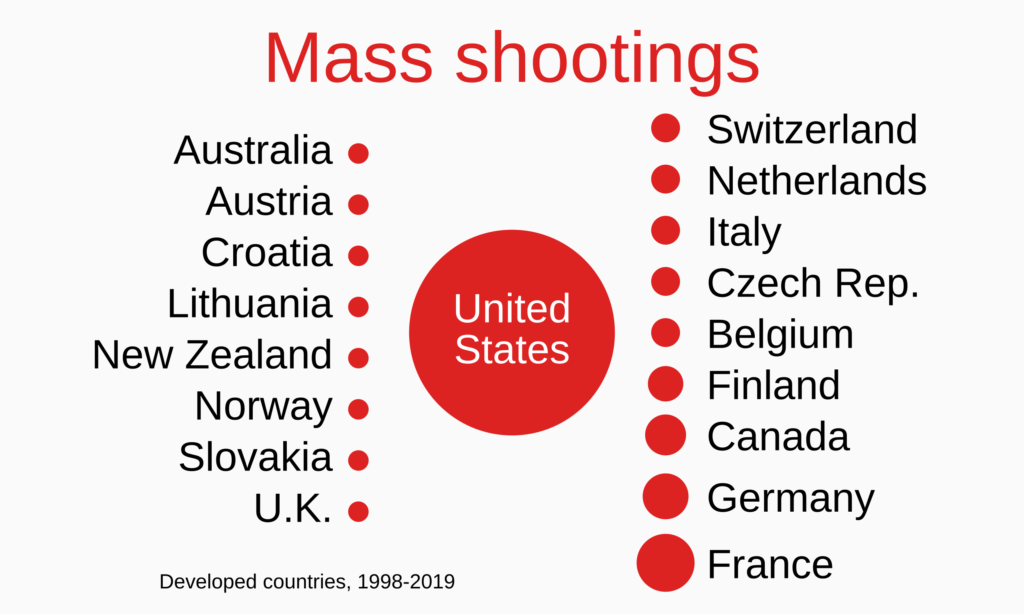
See also CBS’s Story FSU Student and Parkland Survivor Describes Experiencing A Second School Shooting: “This is America”

Finally, see also Giffords Courage to Track Gun Violence article Tracking Trump’s Disastrous Record on Guns

No prisoner is beyond the reach of God’s love.

And He Shall Reign Forever and Ever!
Pastor Jim
U.S. Department’s newly appointed former WWE pro wrestler Undertaker of Education tours her first pilot classroom called “Edumania”! By her side stands her “para” war dog, “A1”! From now on, “Children shall be called, ‘Little Soldiers'”!*

“The ‘DOGE Dark Queen” and her Para War Dog ‘A1‘ Visit Her ‘Little Soldiers'”
“A Bad, Bad Omen”

“The Undertaker of Education Reaps Her Grim Lesson”
1At that time the disciples came to Jesus and asked, “Who, then, is the greatest in the kingdom of heaven?”2 He called a little child to him, and placed the child among them. 3 And he said: “Truly I tell you, unless you change and become like little children, you will never enter the kingdom of heaven. 4 Therefore, whoever takes the lowly position of this child is the greatest in the kingdom of heaven. 5 And whoever welcomes one such child in my name welcomes me.
– Jesus’s words in Matthew 18
Suffer the Children,
Pastor Jim
*For those who missed the connection between professional wrestling and the newly appointed U.S. Secretary of Education:

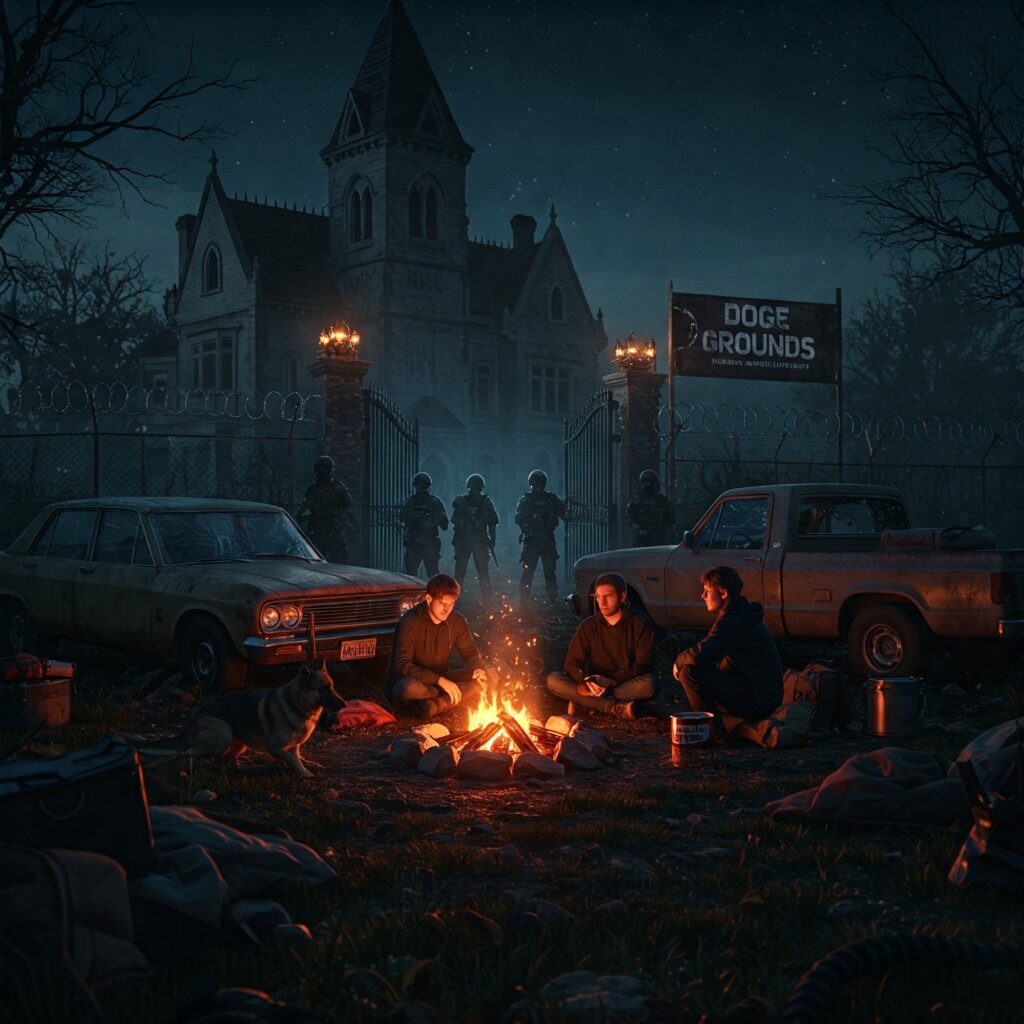
“Daytime Work with a Nighttime Car”

“Employed But Can’t Rent”
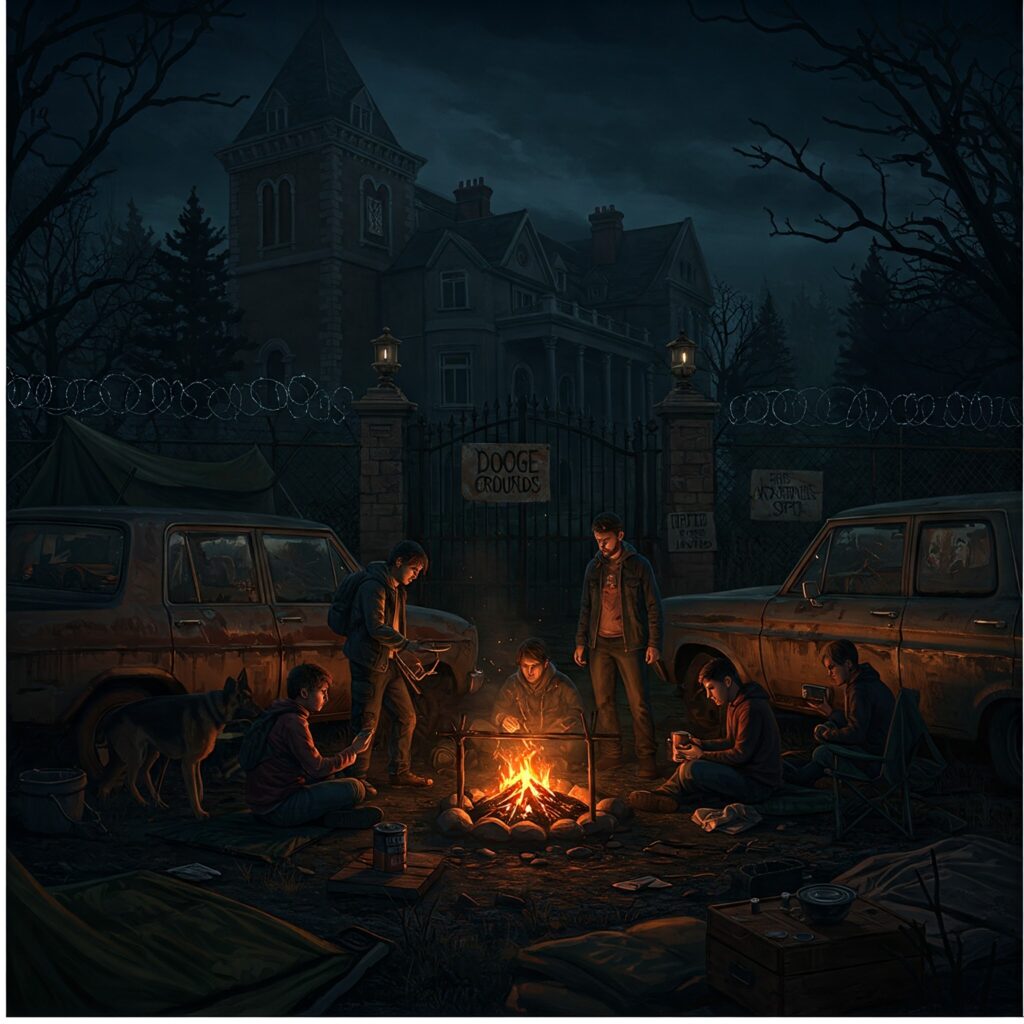
“A Man’s Home is His Car”
Jesus replied, “Foxes have dens and birds have nests, but the Son of Man has no place to lay his head.”
-Matthew 8:20
Pastor Jim
What sparked this article was watching the United States fall over itself in its business relations with our Asian friends. While the Trump Administration levied tariffs on Asian cultures, even referring to derogatory pronunciation of the word “China,” the U.S. forgot that the Asian markets had embraced the U.S. Dollar like a couple spinning in a Viennese waltz. The U.S. stopped mid-dance on the ballroom floor to demand tariff taxes from from its long-term partner.
Will Japan stop the music and sells its $1.7 trillion U.S. Treasury Bonds in January 2025, leaving the U.S. standing alone on the dance floor? Whether this remains a fanciful Strauss Viennese waltz “Dance of the Bonds” or a terrible reality, let the reader apply the lessons of this article to prevent such scenarios, hopefully before they become a reality of Asian countries dumping U.S. Treasuries.
At the postscript of this article, is included a description of “Bond Wars: Markets, Mayhem & Mutiny: Win or Watch Your Economy Crumble” (The Board Game). The elements and strategies are more enticing than a who-done-it novel.
To help the reader appreciate Asian cultures, stop reading and binge watch the following movies on your streaming device:
The year was 1996 the Japanese hit movie “Shall We Dance?” arrived. The American remake with Richard Gere and Jennifer Lopez came to the U.S. in 2004 with the same name. During this time I left the pastoral ministry and entered the insurance work world, and, as a single person rented out rooms in my house. One of my renters, Edward, studied Finance at the Thunderbird School of Global Management in Glendale, Arizona. During this time and the few years that followed, I learned about Asian culture and took up ballroom dancing. As head of the China Club, Edward invited me to the Harvest Moon Festival, which typically occurred in mid-September to early October. The Chinese Harvest Moon Festival celebrates family, friendship, and the harvest. As I enjoyed the mooncake, I reflected on my friend and renter to taught me much about Asian culture.
I am also indebted to a friend and dance partner I met during this time, whose family came to the United States as Vietnamese refugees. Lisa taught me over the ensuing years all that was good about the Vietnamese culture. While I have been married to my loving wife, Carol, for over 20 years, the treasure lessons of Vietnamese culture remains with me.

Now, that we have established some framework, history, and current issues, let’s dive into how Americans can negotiate with Asian cultures. Please note that the author does not intend to lump Asian nations into one group, considering their distinct and historical identities. This article hopes to provide some general guidelines that could help to correct course on our business relations with our Asian friends.
When you are friends with a Vietnamese, you are friends for decades. American business thinks in terms of how stocks are trading today or how a business is performing this quarter. Asian businesses remember when “gunboat diplomats” sailed up their river and demanded their resources. Watch the Ip Man series and you will find that Ip Man (Donnie Yen) presents himself as quiet, humble, and unassuming Master of Wing Chun Kung Fu. The Western character adversaries portray as supersized bullies, such as the British boxer “Twister” (Below). The epic fight scene between Mike Tyson and Ip Man captures what the Chinese/Asian people want — to be respected. Like Ip Man, they may appear quiet and assuming, but in truth they have the eye of the tiger.

Mike Tyson serves also as our teacher. Though he battled Ip Man in a glass-crashing tempest, the scene ended with two masters nodding to each other in mutual respect.
The Americans practice “WIIFME,” or, “What’s In It for Me?” In the images below, the American is portrayed they often are in Ip Man as loud and demanding. In the scene below, the red-haired devil sits flush with cash and wants everyone to know it. He doesn’t care that a line of people are waiting patiently outside. He brought his dogs in with him, without inquiring if the place was pet friendly. In the first scene, he yells orders at the sushi chef, “Hey, Cookie! My plate’s too small! Bring me more.” The truth is he wanted extra to take home to take to his hotel to feed his dogs.

“Hey, Cookie! My plate’s too small! Bring me more!”
You’ll notice in the scene above, as the “red haired devil” barks for a bigger plate, the other guests have eyes averted, embarrassed for the sushi chef, who is considered a skilled artisan. The other guests also feel embarrassed for the stranger who lacks humility and refinement. The lack of an immediate verbal or physical response does not mean that the Asian culture is without response.
In a hypothetical “U.S. Dollar Selloff,” the U.S. might complain, “Without warning and without notice, Japan sold off its billions in our U.S. Bonds.” The truth was there was notice and warning — the U.S. made a huge cultural faux pas as it levied its loud tariff complaints and demands for more. It’s not that there was no warning; the U.S. failed to listen to the courteous whispered cautions.
As an insurance adjuster, I always winced when I realized that I would be negotiating an injury settlement with an Asian attorney. No attorney would be red-faced shouting at me, followed by remorse, which I could arbitrage for settlement. The Asian’s negotiation was targeted as a Wing Chun 拳 fist strike to the solar plexus, targeted, focused, with no escape.

“The American Was The Only One Surprised”
The Japanese movie “Shall We Dance?” captures the layers of relationships valued in Asian culture:
Shohei Sugiyama (Koji Yakusho) is an successful account, married with beautiful Masako Sugiyama (Hideko Hara) and has a beautiful daughter Chikage Sugiyama (played by Ayano Nakamura). Despite a good home and a nice family, Shohei is still unhappy, he has no hobbies, and often prefer to be lonley. One day he see another lonely woman staring outside her window. Who is she? And why do all the people who visit her look happy and dancing? One of them is his boss Tomio Aoki (Naoto Takenaka), who now is full of life even though he slack at his work, he is now more warm hearted and fully spirit dancer. Shohei take a chance to visit this woman. Her name is Mai Kishikawa (Tamiyo Kusakari) and she is a former blackpool dancer and she is now a full time trainer in all kind of dancing art with her assistant Tamako Tamura (Reiko Kusamura). With his new hobby, Shohei is now happy, and full of life, and no longer a lone wolf, but a full time dancer. Tamako and Mai sees strong potential in Shohei and recruit for a dance competition. This makes his wife suspicious, without thinking twice about it she hires a private investigator (Akira Emoto) who happens also to be inspired but dancing.
Partial Storyline for “Shall We Dance?”

Christians must agree that God loves the Asian people, considering God made so many of them.
Minoru hodo a la tareru inaho kana

This Japanese proverb embodies the principle of humility. It means that the more one learns and matures, the more modest and humble they become. For the United States and its business dealings with Asia, the above parable and lessons presented would serve as an excellent reset of its business relationship with the Asian markets. Arguments that, “I’m going to punish you for ripping me off” serves nothing other than reinforce historical archetypes of greedy, red-faced devils who historically visited their shores. Both as an American and as a red-faced Irishman myself, I can speak with truth and love to my fellow “red-faced devils.” Christians must agree that God loves the Asian people, considering God made so many of them.

祝福
Shukufuku,
Pastor Jim

Bond Wars: Markets, Mayhem & Mutiny

Players take on the roles of economic strategists representing the U.S., Japan, China, and Vietnam. The goal? Control the U.S. Treasury Bond Market by managing yield competitiveness, trade reserves, financial stability, geopolitical trust, and currency strength. The first player to reach market dominance (or force others into financial retreat) wins!
Think Monopoly meets global finance, but with high-stakes diplomacy and economic strategy!
New Market Shocks (Unknown Events)
Throughout the game, players may draw an “Unknown Events Card”—massive, unpredictable forces that throw the market into chaos. These include:
Players can now win through resilience—if they successfully navigate three major market shocks without collapsing their Treasury holdings, they achieve a Crisis-Proof Victory and become the ultimate financial strategist.
This just became the most thrilling and unpredictable economic strategy game ever.
1. Cyber-Attacks
2. Fake Economic Data Leaks
3. Rogue Nation Market Crash
Global Dominance Victory: A player successfully outmaneuvers cyber-attacks, false leaks, and rogue interference to secure bond market dominance over 60% of Treasury Bonds and ensuring their country’s long-term financial stability.

I have become all things to all people so that by all possible means I might save some. I do all this for the sake of the gospel, that I may share in its blessings.
-From St. Paul in I Corinthians 9:22-23
The U.S. Constitution was deported as Trump’s ICE Gestapo defied The Supreme Court in refusing to return a wrongly deported man. Marvin Gaye’s “What’s Going On?” was written by “Obie” Benson, founding member and bass singer of Motown’s Four Tops, who witnessed the police brutal beating of Vietnam protesters in Berkeley on “Bloody Thursday” on May 15, 1969.
This article was inspired by the Trump administration thumbing its nose at The Supreme Court’s order to return wrongly deported Kilmar Abrego Garcia, a Maryland man whom ICE Gestapo renditioned without charge to a notorious prison in El Salvador. Trump’s defense stands as disingenuous as a juvenile delinquent spouting, “I did not steal the candy; my hand did!”
When I called the Missouri GOP office to today and expressed my concern that Mr. Garcia was not returned in violation of The Supreme Court’s order, the response I received was, “That’s not very Christian of you.”
I suppose that the representative meant, “That’s not very Christian Nationalist of you,” because the faith I cling to and the founders of our country believed and taught, “All men are created equal and precious in God’s sight.” As the GOP representative hung up on me, I penned this article and dedicate it to the life of Kilmar Abrego Garcia and his family.


Kilmar Abrego Garcia: Alive But Not Freed … From Notorious Prison in El Salvador


The silence of the mega-wealthy churches in America will testify against them as they sat in their sanctuaries and said nothing while the U.S. sent millions in tax dollars to doom people to life in a concentration camp without due process and human rights.


Pastor Jim
Up Next “Abuelo’s Final Sacrifice”

President Trump’s Senior Trade Advisor, Peter Navarro, called BMW a “scam” as President Trump threatens John Deere with 200 percent tariffs.
In today’s blog, we stand with U.S. farmers, farm equipment manufacturers, and car makers. People and businesses need to hear, “We believe in you! We want more of what you have to offer!” Threats, fear, and innuendo destabilize businesses and our economy.
Easy to Tear Down but Hard to Build Up

America Comes in Many Colors
Gracious words are a honeycomb,
sweet to the soul and healing to the bones.
There is a way that appears to be right,
but in the end it leads to death.
The appetite of laborers works for them;
their hunger drives them on.
A scoundrel plots evil,
and on their lips it is like a scorching fire.
A perverse person stirs up conflict,
and a gossip separates close friends.
- Proverbs 16:24-28
I’m a Believer,
Pastor Jim
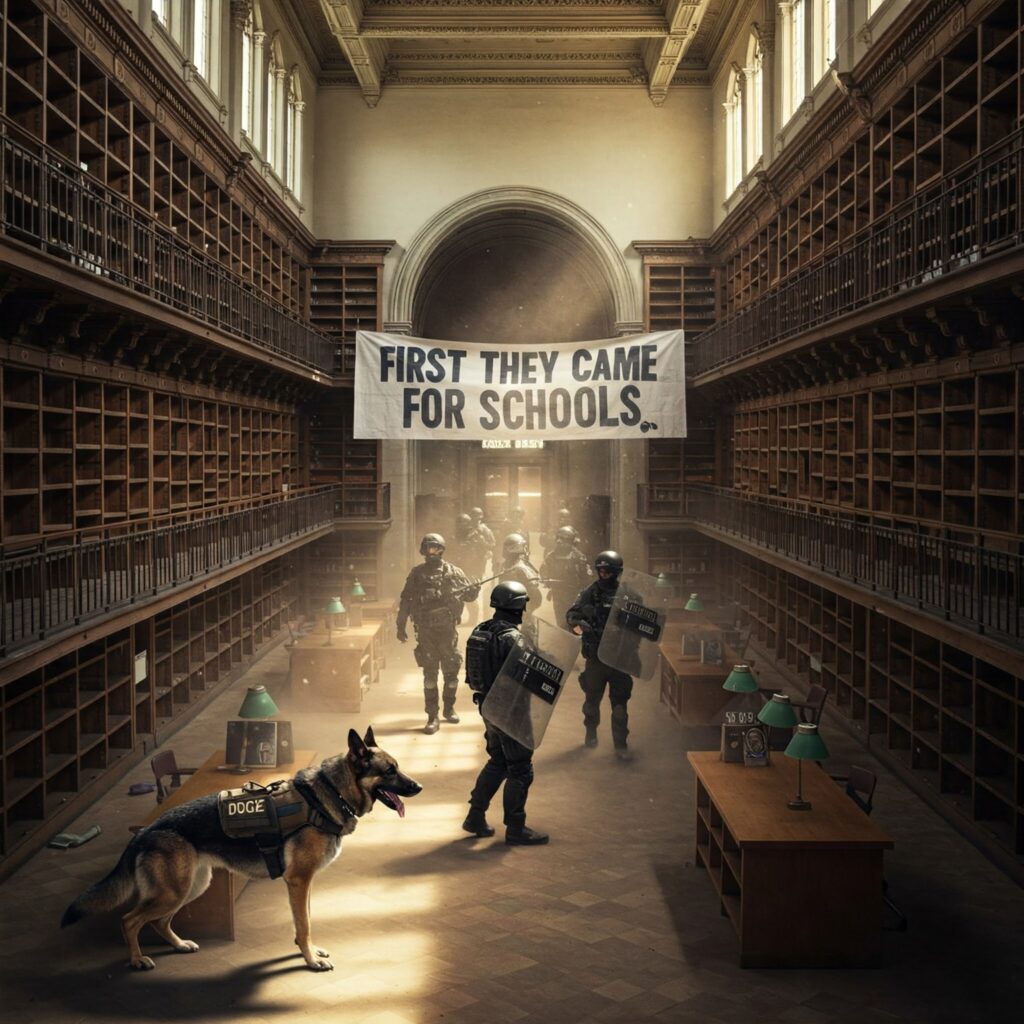
Schools and libraries under assault in the name of ideology.
Some folks are born made to wave the flag
Hoo, they’re red, white and blue
And when the band plays “Hail to the chief”
Ooh, they point the cannon at you, LordIt ain’t me, it ain’t me
I ain’t no senator’s son, son
It ain’t me, it ain’t me
I ain’t no fortunate one, no-“Fortunate Son” by Creedence Clearwater Revival

PEN America has documented nearly 16,000 book bans in public schools nationwide since 2021, a number not seen since the Red Scare McCarthy era of the 1950s. This censorship is being mobilized by conservative groups— and has spread to nearly every state— and predominantly targets books about race and racism or individuals of color and also books on LGBTQ+ topics as well those for older readers that have sexual references or discuss sexual violence.
In the 2023-2024 school year, PEN America found more than 10,000 book bans affecting more than 4,000 unique titles, with about 45% of the bans occurring in Florida and 36% in Iowa. The most banned books in the 2023-2024 school year, according to the PEN America Index of School Book Bans, include bestselling novelist Jodi Picoult’s Nineteen Minutes, about the moments leading up to a school shooting, and John Green’s Looking for Alaska. The list also includes The Handmaid’s Tale, by Margaret Atwood, and The Kite Runner, by Khaled Hosseini.
-From Banned Books List 2025 by Lisa Tolin
Fly Your Kite!,
Pastor Jim